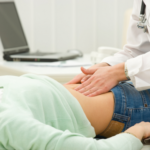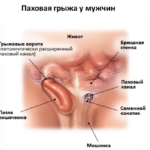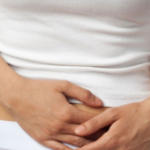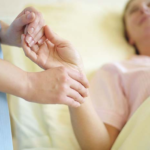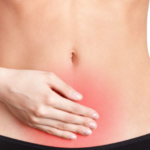Rehabilitation after inguinal hernia surgery in men
An inguinal hernia is manifested in a protrusion in the inguinal region. The elements of the hernial sac can be the organs of the abdominal cavity: fragments of the greater omentum, intestinal loops, peritoneum. Due to the peculiarities of the anatomy, it is more common in men than in women.
The inguinal canal in men looks like a slit-like space between the abdominal muscles. Normally, it contains the spermatic cord and nerve fibers. When pathological abnormalities occur, the inguinal canal expands, and an oblique or direct inguinal hernia is formed .
How to treat an inguinal hernia? There are many conservative methods and surgical. However, the only and most effective is surgical treatment.
Hernia removal is performed under local or general anesthesia. During the surgical intervention, the hernial sac is removed, the inguinal canal is strengthened, plastic surgery is performed using muscles or an artificial polypropylene graft (the so-called "mesh").
And now the surgical treatment is behind. Next - rehabilitation after inguinal hernia surgery in men.
How long is recovery after surgery for men
The duration of recovery depends on many factors, the main of which is the choice of type of anesthesia. With local anesthesia, it passes faster, and if there are no complications, in some clinics such patients can be allowed to go home after a few hours.
Further rehabilitation after surgery, patients undergo outpatient treatment. They always come to the doctor's office, make dressings. The attending physician monitors the course of the postoperative period, in the presence of complications, takes the necessary measures to eliminate them.
How long will the patient have to spend in a hospital bed after an operation performed under general anesthesia?
If for some reason it was necessary to operate not under local anesthesia, the initial stage of recovery is extended. In this case, the patient will have to spend 3-5 days in the hospital. In the postoperative period of inguinal hernia in men, special attention is paid to the presence of edema, the general condition of the patient, and complications. If the wound in the area of the surgical suture hurts, then painkillers are prescribed.
Rehabilitation in the outpatient period
The outpatient phase after inguinal hernia surgery in men usually lasts one or two weeks. The patient is recovering, gaining strength. At this time, it is very important to observe the diet, rest, dosed and with great care to increase motor activity and loads.
Postoperative recovery usually goes without complications, if the patient visits the doctor on time, follows his recommendations and requirements. The doctor, in turn, monitors the course of rehabilitation after removal of the hernia, gives his recommendations, in case of complications, hospitalizes or prescribes additional treatment.
What the patient should know
During the first week after the removal of the inguinal hernia, the postoperative suture will hurt. This is normal. To reduce pain sensitivity, the patient takes painkillers prescribed by the doctor. Recommendations to be observed by the postoperative patient:
- You should not lift weight more than 5 kg, increase physical activity after surgery gradually after 5-7 days;
- Perform a course of physical therapy exercises as prescribed by the doctor;
- If the doctor has prescribed wearing a bandage, then it is necessary to purchase a postoperative belt;
- Monitor the hygiene of the postoperative suture: immediately after the operation, the wound is treated in a hospital under the supervision of a physician. Further, on an outpatient basis, treatment is performed by relatives or by the patient himself. In this case, the doctor should give recommendations on the treatment of the wound;
- Observe the diet: it must be balanced, constipation and diarrhea are not allowed. It is best to eat in small quantities, 4-5 times a day. The diet should be rich in protein. It is found in chicken meat, dairy products, mushrooms, fish dishes. Due to the high protein content in food, tissues regenerate faster after surgery to remove an inguinal hernia.
Important! In the case of an operation using a polypropylene mesh implant, it is not recommended to wear a bandage.
Complications after surgery
Possible consequences of inguinal hernia surgery in men arise as a result of the individual characteristics of the patient, non-compliance with the requirements of the doctor in the postoperative period, in rare cases, surgeons make mistakes (the so-called iatrogenic complications ).
Iatrogenic include:
- Violation of the integrity of the spermatic cord. Occurs due to the negligence of the surgeon, when the testes are damaged during excision of the hernia and removal of the hernial sac. This can lead to a weakening of male potency, a violation of the hormonal background and spermatogenesis, which further threatens testicular atrophy and inability to fertilize.
- wound infection after surgery. It is a very dangerous complication, as it can threaten the development of sepsis. In such cases, antibiotics are prescribed.
- Damage to the intestine during surgery.
- Bleeding. They can also lead to serious consequences.
Other possible complications after inguinal hernia surgery include:
- Deep vein thrombosis of the lower leg (usually occurs in the elderly, as well as in sedentary patients. Accompanied by pain in the calf muscles, fatigue of the lower extremities. Anticoagulants or thrombolytics are prescribed to prevent such consequences.
- Dropsy of the testis in men. It happens both one-sided and two-sided. Easily detected: there is an increase in the scrotum on the side of the lesion. Requires reoperation.
- Swelling of the testicle. It usually occurs after surgery, in some cases it goes away on its own. Accompanied by pain in the testicles.
- Re-occurrence of hernial bulging as a result of a violation by the patient of the regimen in the rehabilitation period: excessive physical activity, weight lifting, sudden movements, etc.
- Infection in the area of the postoperative suture.
- Hematoma formation. To avoid this complication, cold (ice) must be applied immediately after surgery.
Attention! To prevent the development of complications, the patient should observe a sparing regimen in the recovery period, clearly follow all the doctor's recommendations.
In case of violation of the mode of motor activity with the use of unacceptable physical activity, the postoperative suture may open, a hematoma may occur, as well as a recurrence of the hernia.
Physical activity in the postoperative period
Within 15 - 20 days, any physical activity is excluded. Further, on an individual basis, the patient can be offered a set of sparing gymnastic exercises to restore the muscles of the groin and abdomen, as well as morning exercises.
Important! At first, it is necessary to conduct classes under the supervision of a doctor or exercise therapy instructor, strictly following his recommendations. Do not exceed the threshold of permissible loads, it can be dangerous for your health and lead to unwanted complications.
Diet after surgical treatment of inguinal hernia in men
In the rehabilitation period, it is necessary to adhere to simple requirements when choosing products. Nutrition after inguinal hernia surgery must be balanced, including all the necessary nutrients and trace elements. You can eat often, but in small portions. The main component of nutrition that will allow a person to recover after surgery is protein. Therefore, the patient in the rehabilitation period should consume enough low-fat varieties of cottage cheese, milk and dairy products, buckwheat porridge, chicken meat, eggs, fish dishes.
The diet is aimed at normalizing the work of the intestines and stomach, that is, foods that provoke constipation, diarrhea, and flatulence are not allowed. The first time after the operation, doctors prescribe a special diet, highlighting such foods as: sparse cereals, low-fat broths and soups, mashed potatoes, boiled fish and meat.
The following foods should be excluded from your diet:
- sweets;
- fruits;
- legume products;
- smoked meats and spicy foods;
- sweet pastries, rye bread;
- dairy products, yoghurts.
Important! Drinking alcohol and smoking after the operation is strictly prohibited. Coffee and coffee drinks should be used with caution, it is advisable to replace them with chicory. The consumption of carbonated drinks is prohibited.
What should be done to patients who have undergone such surgery
After a month after surgery, patients usually return to their daily activities. But in order to avoid possible troubles in the postoperative period, you should adhere to simple requirements:
- observe the mode of physical activity;
- strictly follow the recommendations of doctors;
- adhere to a proper diet;
- observe the hygiene of the postoperative suture.
With the correct implementation of these simple recommendations, you will forever get rid of and forget about the disease that tormented you, and after a year, even the seam will become practically invisible.



